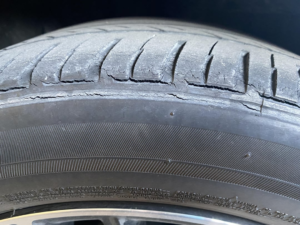
Understanding Tire Lifespan
Car tires, like many other vehicle components, have a finite lifespan. While tires do not come with an explicit expiration date, their performance and safety can degrade over time, even if they appear visually intact. Understanding the factors that contribute to tire aging and knowing how to assess tire condition are crucial for ensuring vehicle safety.
Factors Affecting Tire Lifespan
Several factors influence the lifespan of car tires:
- Age: Tires generally have a recommended lifespan of 6 to 10 years, regardless of tread wear. The rubber compounds in tires can degrade over time due to environmental exposure, such as UV rays, ozone, and fluctuating temperatures.
- Mileage: Tire tread life is commonly measured in mileage, with many tires designed to last between 40,000 to 60,000 miles. Regular driving, road conditions, and driving habits can affect how quickly tires wear out.
- Storage Conditions: Tires stored in harsh conditions, such as high temperatures or direct sunlight, can age prematurely. Proper storage can help extend tire life.
- Maintenance: Regular maintenance, including proper inflation, alignment, and rotation, can significantly impact tire longevity. Neglecting these factors can lead to uneven wear and reduced tire life.
How to Check Tire Condition
To determine if your tires are still safe to use, consider the following:
- Tire Age: Check the tire’s manufacturing date, which is stamped on the sidewall. The date code consists of four digits, indicating the week and year of manufacture. For example, “2319” means the tire was made in the 23rd week of 2019.
- Tread Depth: Use a tread depth gauge to measure the remaining tread. Most tires should be replaced when the tread depth reaches 2/32 of an inch. Some tires have built-in indicators that show when tread depth is low.
- Visual Inspection: Look for signs of cracking, bulging, or uneven wear on the tire surface. These can indicate aging or damage that requires replacement.
- Professional Inspection: Have your tires inspected regularly by a professional who can assess their condition and provide recommendations based on their findings.
Conclusion
While car tires do not have a specific expiry date, their effectiveness and safety are influenced by their age, mileage, and overall condition. Regular inspections and proper maintenance are key to ensuring that your tires remain safe and perform well throughout their lifespan. By staying informed and proactive, you can help ensure the safety and reliability of your vehicle on the road.